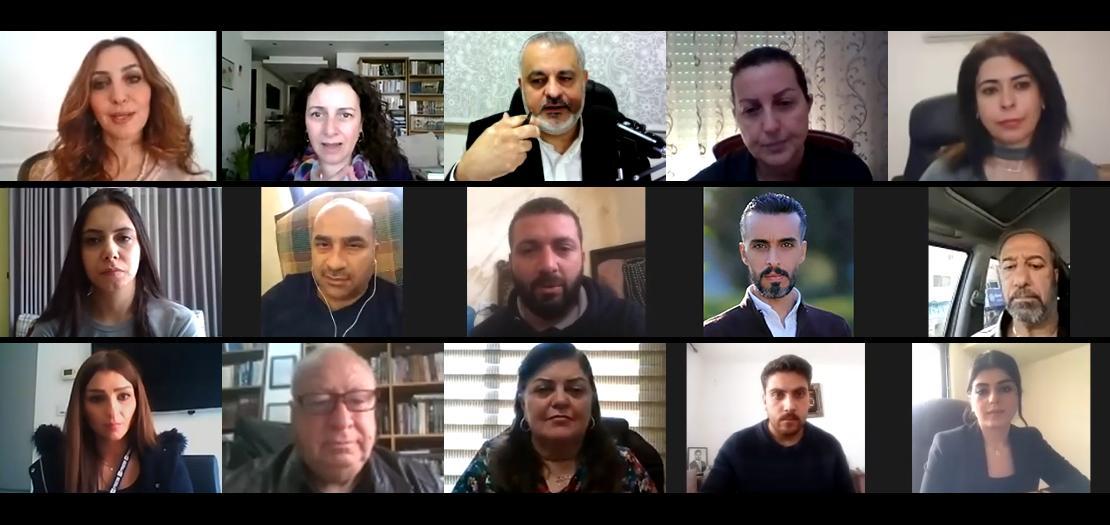The Catholic Center for Studies and Media (CCSM) in Jordan organized a three-day plenary and training sessions for media professionals and journalists from various local media outlets operating in the Jordan through the application of ZOOM, on March 15-17.
In an opening address Fr. Dr. Rif’at Bader, welcomed the participants and thanked both the Latin Patriarchate and the Austrian Portex Foundation as with whose cooperation the sessions are held.
On the first day, Dr. Dima Karadsheh, a researcher in social sciences, presented “a general panorama on the interfaith dialogue situation in Jordan and how this is presented by Jordanian journalists.” She indicated that interfaith dialogue cannot take place without a solid ground for dialogue and without the search for common denominators and values. She stressed the importance of having the religious discourse contain positive connotations that reinforce and respect the religious components in a country, stemming from human rights based on justice and equality, under the umbrella of citizenship that includes diversity.
Dr. Karadsheh referred to the Jordanian initiatives in the field of dialogue, noting that Jordan has gained a pioneering reputation in this field through its support for several institutes, centers, initiatives, conferences and seminars, and by welcoming four Popes who paid historic visits to this country. She also called on media outlets to address various civil society institutions such as schools and universities, as well as women and youth.
On the second day, Director of Adyan Foundation in Lebanon Dr. Nayla Tabbara spoke about “the religious situation in the Arab world, and how to deal with prejudices and fake news.” She emphasized the importance of educating the new generations on universal human values such as love, brotherhood, cooperation and solidarity, and accepting the others.
On the third day, CCSM Director Fr. Dr. Rif’at Bader spoke on the role to be played by the media so as to bolster humanity, brotherhood, and culture of encounter, as well as to serve truth, beauty and goodness. He pointed out that the CCSM launched two years ago “The Media Code of Ethics“, which states that a sound media is the one that adheres to the ethics of the media and humanitarian message, provided that the profession in the field of media is a message based on highlighting closeness and friendship among all people, avoiding what provokes racial or sectarian strife, and ensures commitment to support an atmosphere that strengthens joint relationship designed to develop the concept of a model country in which everyone enjoys a good citizenship sharing the same rights and duties.
On the third day, Dr. Marcel Jweinat, a media professor at Yarmouk University, spoke about her experience in terms of interfaith dialogue and citizenship based on belonging to the homeland regardless of differences between citizens. She also addressed the role of the media and social media networking calling on them to serve dialogue and acceptance of others rather than serving as platforms for launching fake news that divide societies.
As for the journalist Rula Sama’n, the specialist in religious affairs and author of the book, ‘Fortress of Peace”, she presented her experience in being a woman working in the field of journalism and media. She stressed that the task of a responsible journalists is to seek peace and promote communal harmony, especially in circumstances in which tension increases. She called for conveying reality with honestly and impartially while preserving hope in a world dominated by materialism and intolerance.
During the three-day sessions, discussions took place among the participants including university students from the Faculty of Information at Yarmouk University tackling the issues being discussed.
By: Munir Bayouk
Source :abouna.org






